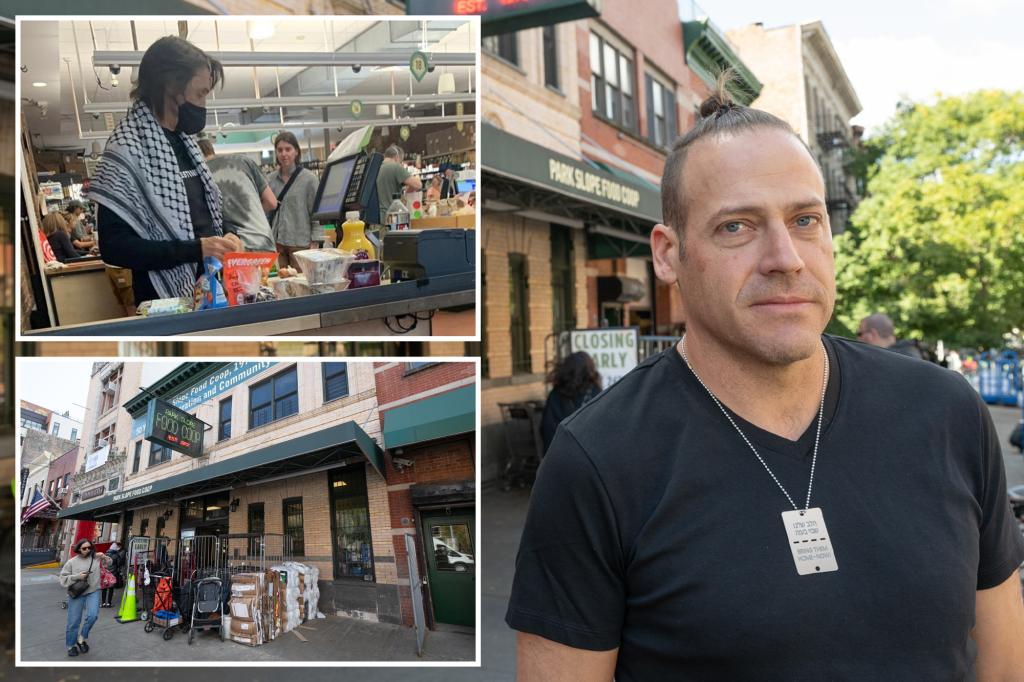The Park Slope Food Co-op has become a battleground for anti-Semitic and anti-Israel sentiments, with members facing harassment for opposing a campaign to boycott Israeli products. Real estate developer Ramon Maislen filed a complaint with the state Human Rights Division after Jewish members were targeted with Nazi slogans and accusations that they “smell of Palestinian blood.” The co-op, founded in 1973, requires members to work shifts in exchange for discounted groceries and voting on store policies. The boycott campaign against Israeli products intensified after the conflict in Gaza, leading to tensions within the co-op.
In one incident, a Jewish member trying to inform shoppers about the boycott was called a “Nazi” and subjected to a verbal attack that included the phrase “Sieg Heil.” The victim, who remains anonymous, was shaken by the brazen display of anti-Semitism and has not returned to the store since. Other members, including Maislen, have faced similar encounters, with accusations of lacking empathy and being associated with Zionist ideologies. Certain members have expressed anti-Semitic conspiracy theories, creating a hostile environment for Jewish and Israeli members of the co-op.
Despite reporting their experiences to the Dispute Resolution Committee, victims have not been informed of the outcomes of the investigations. The pro-boycott campaign, known as Park Slope Food Co-op Members for Palestine, justified their actions as a way to avoid support for what they see as an apartheid government and genocide in Israel. Maislen expressed a desire to have conversations with other members in hopes of making them understand the impact of their actions on Jewish and Israeli members. The state Human Rights Division and the boycott campaign declined to comment, while the co-op itself did not respond to requests for comment on the situation.
The incidents at the Park Slope Food Co-op highlight the intersection of political beliefs and personal prejudices within a community organization. Members who oppose the boycott campaign have faced verbal abuse and harassment, leading to feelings of alienation and discomfort within the co-op. The lack of response from the Dispute Resolution Committee and the organization itself raises questions about the handling of such conflicts and the protection of members from discrimination based on religion or nationality. The ongoing tensions between pro-boycott and anti-boycott factions within the co-op underscore the challenges of creating inclusive and respectful spaces in politically charged environments.
The complaints filed by Jewish and Israeli members of the co-op shed light on the prevalence of anti-Semitic attitudes and rhetoric even in progressive and socially conscious communities. The use of Nazi slogans, accusations of celebrating violence, and references to blood libel all contribute to a toxic atmosphere that is antithetical to the values of the co-op. Addressing these issues requires a commitment to fostering understanding and empathy among members with differing perspectives, as well as ensuring that all individuals feel safe and respected within the community. The resolution of these conflicts will depend on the willingness of the co-op leadership to address the root causes of discrimination and promote a culture of inclusivity and mutual respect.


